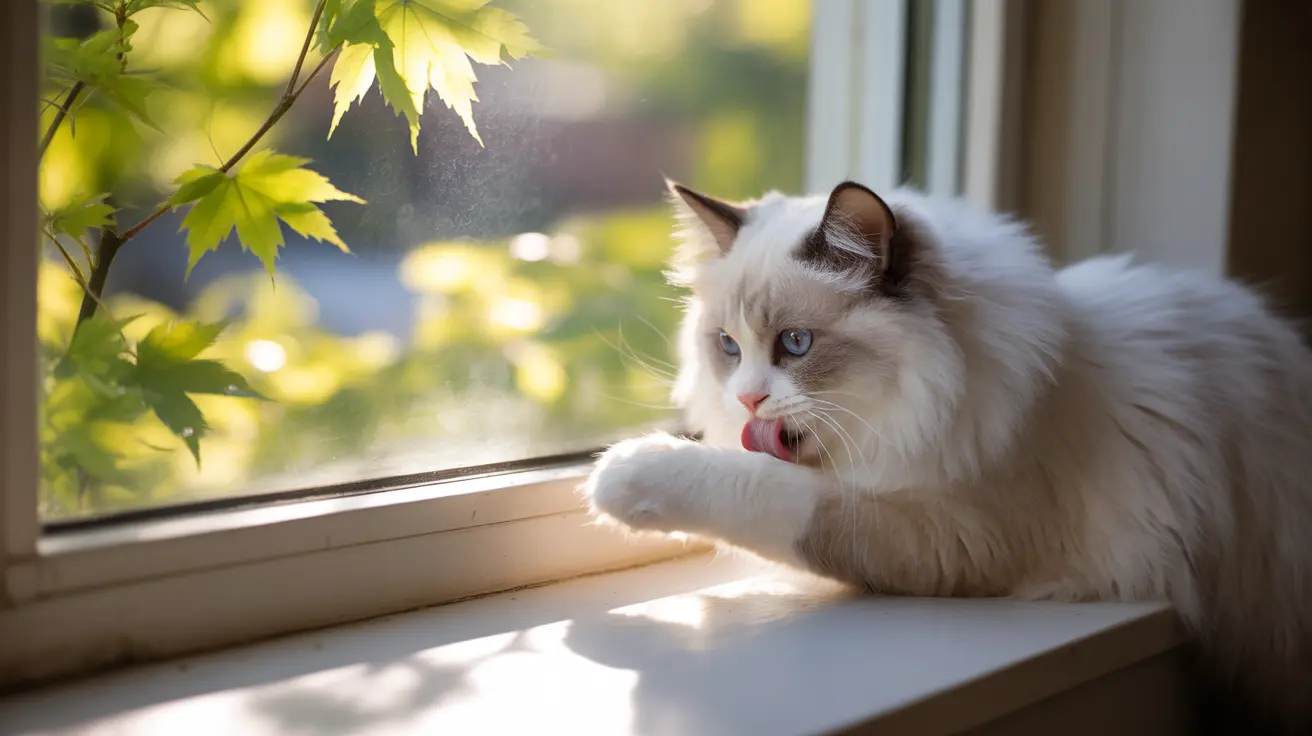The Science Behind Feline Self-Grooming
Cats are nature's neat freaks, spending an impressive 30-50% of their waking hours engaged in grooming activities. Their tongues are specially equipped with tiny backward-facing barbs called papillae, which act like natural combs to remove dirt, loose fur, and parasites effectively.
This meticulous self-grooming serves multiple purposes beyond basic cleanliness. It helps cats regulate their body temperature, distribute natural oils throughout their coat, and even manage stress levels. The behavior is so ingrained that it's actually an indicator of good health in cats.
Dogs and Their Grooming Limitations
Unlike their feline counterparts, dogs have significantly different grooming capabilities. While they do engage in some self-cleaning behaviors, their physical limitations and evolutionary background result in less effective self-grooming practices.
Dogs typically rely more heavily on external grooming assistance, whether from their human companions or professional groomers. This dependency stems from their pack animal heritage, where mutual grooming was more common than individual maintenance.
Bathroom Habits and Environmental Impact
One of the most striking differences between cats and dogs lies in their bathroom habits. Cats instinctively bury their waste, a behavior that helps minimize odors and maintain cleaner living spaces. Their use of litter boxes, when properly maintained, provides a controlled and relatively odor-free solution to waste management.
Dogs, however, require outdoor bathroom breaks and training to develop appropriate habits. This can lead to occasional indoor accidents, especially during training periods or inclement weather, potentially affecting home cleanliness.
The Role of Evolution in Pet Hygiene
Cats' superior cleanliness can be traced back to their evolutionary history as solitary hunters. Their survival depended on staying clean to remain undetected by both prey and predators. Modern domestic cats retain these instinctive behaviors, making them naturally more fastidious about personal hygiene.
Dogs evolved as pack animals, where strong scents actually played a positive role in group communication and territory marking. This evolutionary background explains why dogs are generally less concerned with masking their natural odors.
Maintenance Requirements for Both Species
While cats may be self-sufficient in their grooming, both species require regular maintenance for optimal health and cleanliness. Cats need clean litter boxes, occasional brushing, and regular nail trimming. Dogs require more hands-on care, including regular baths, brushing, and dental hygiene maintenance.
Impact on Home Cleanliness
The cleanliness impact of cats versus dogs on the home environment varies significantly. Cats typically create less mess due to their indoor lifestyle and self-cleaning habits. Dogs, especially active ones, may bring in dirt, mud, and outdoor debris, requiring more frequent home cleaning.
Frequently Asked Questions
Why are cats generally considered cleaner than dogs?
Cats are considered cleaner primarily because they spend a large portion of their day self-grooming using their specialized tongues, have fastidious bathroom habits, and naturally work to minimize their scent. Their evolutionary background as solitary hunters has made them exceptionally self-sufficient in maintaining personal hygiene.
How does a cat's self-grooming routine compare to a dog's grooming habits?
Cats spend up to 50% of their waking hours grooming themselves using their barbed tongues, while dogs have limited self-grooming abilities and rely more on human assistance for maintaining cleanliness. Cats can reach most parts of their bodies effectively, whereas dogs have more restricted access to self-cleaning.
What makes cat litter boxes better at controlling odor compared to dog bathroom habits?
Cat litter boxes are better at odor control because cats instinctively bury their waste, and modern litter materials are specifically designed to trap and neutralize odors. Dogs eliminate outdoors without covering their waste, and their bathroom habits are generally less controlled.
How often do cats and dogs need baths and brushing to maintain hygiene?
Cats rarely need baths unless they get into something particularly messy, while most dogs benefit from bathing every 4-8 weeks depending on their breed and lifestyle. Both species benefit from regular brushing, though dogs typically require more frequent brushing sessions.
Can cats' grooming habits help prevent parasites more effectively than dogs' self-cleaning?
Yes, cats' thorough self-grooming habits can help detect and remove surface parasites more effectively than dogs' limited self-cleaning abilities. However, both species still need regular veterinary-approved parasite prevention treatments for complete protection.






